Lenovo Tab P11 Pro Gen 2
The original Lenovo Tab P11 Pro was already a good product, making the cut for our best Android tablets list. At IFA 2022, the manufacturer unveiled the sequel - both in Pro and non-Pro flavours. The former is the one we’ll be mainly looking at here, and in our opinion it's unquestionably the better of the two.
Like its predecessor, the Lenovo Tab P11 Pro Gen 2 is a tablet that wants to be a laptop. We’d argue that improvements to the Android OS and generally better app support has made this a more achievable goal than when the original was released back in 2020. It’s got all the usual stuff you’d want for a tablet-laptop hybrid; a kickstand and magnetic keyboard cover are joined by Lenovo’s Precision Pen 3 stylus.
The most interesting thing here is probably the screen, though. The 11.2-inch 2.5K OLED panel with a 120Hz refresh rate and full DCI-P3 color gamut looks fantastic and feels super responsive whether you’re using a stylus or a fingertip. High-refresh-rate screens on tablets are somewhat rare, with the regular Tab P11 Gen 2 being perhaps the cheapest 120Hz tablet we’ve ever seen.
Price and availability
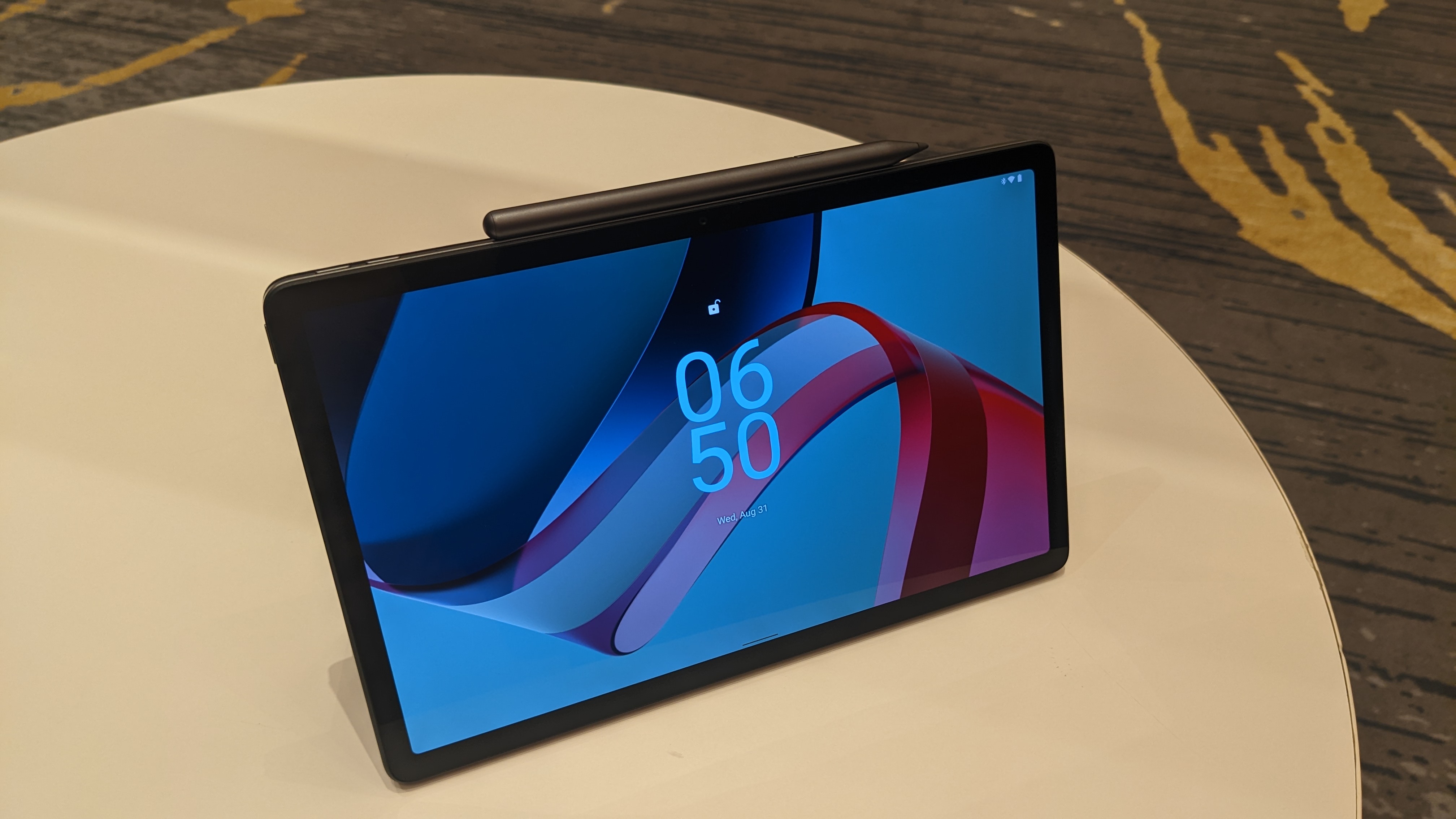
With a starting price of $399.99 (about £350), the Lenovo Tab P11 Pro Gen 2 is actually a bit cheaper than its predecessor was at launch. It will be available very soon, while the $249.99 non-Pro variant will be launching in early 2023.
The keyboard apparently comes bundled with the Tab P11 Pro Gen 2, but are an optional extra for the regular Tab P11 Gen 2. The Lenovo Precision Pen 3 also costs an extra $69.99. We don’t have complete pricing information yet - there are higher-spec models of the Tab P11 Pro Gen 2 that come with more RAM and storage. We’ll update this hands-on review once we know more.
Design

At first glance, the Tab P11 Pro Gen 2 isn’t a huge departure from the first Tab P11 Pro. We’ve got a similar screen-to-body ratio, a super-thin design with a slight ridge around the rear camera array, and the same dual-tone metallic finish on the back. A single USB-C port and a MicroSD card slot are located on the opposing short edges.
It’s hardly a revolution in design, but it doesn’t need to be - it was already good. For our money, the rear camera looks better on this one, with the flashlight brought inside the raised array block. There’s no integrated kickstand to be found here; instead, it’s a magnetic panel that snaps to the back of the tablet. The hinge is located in the center and is very robust, allowing you to easily set the optimal viewing angle.
The kickstand panel has a fabric finish, but it’s a bit more grippy and durable than the original’s soft material. It’s very reminiscent of the one found on the HP Chromebook x2 11 - a strong competitor that makes a good case for ChromeOS-powered tablets. Unique to the Tab P11 Pro Gen 2, though, is a little space in the kickstand panel where you can store the Wacom-powered Lenovo stylus. This is held in place magnetically (or can be attached to the top edge of the tablet) and charges wirelessly while inside its cradle, which we love.
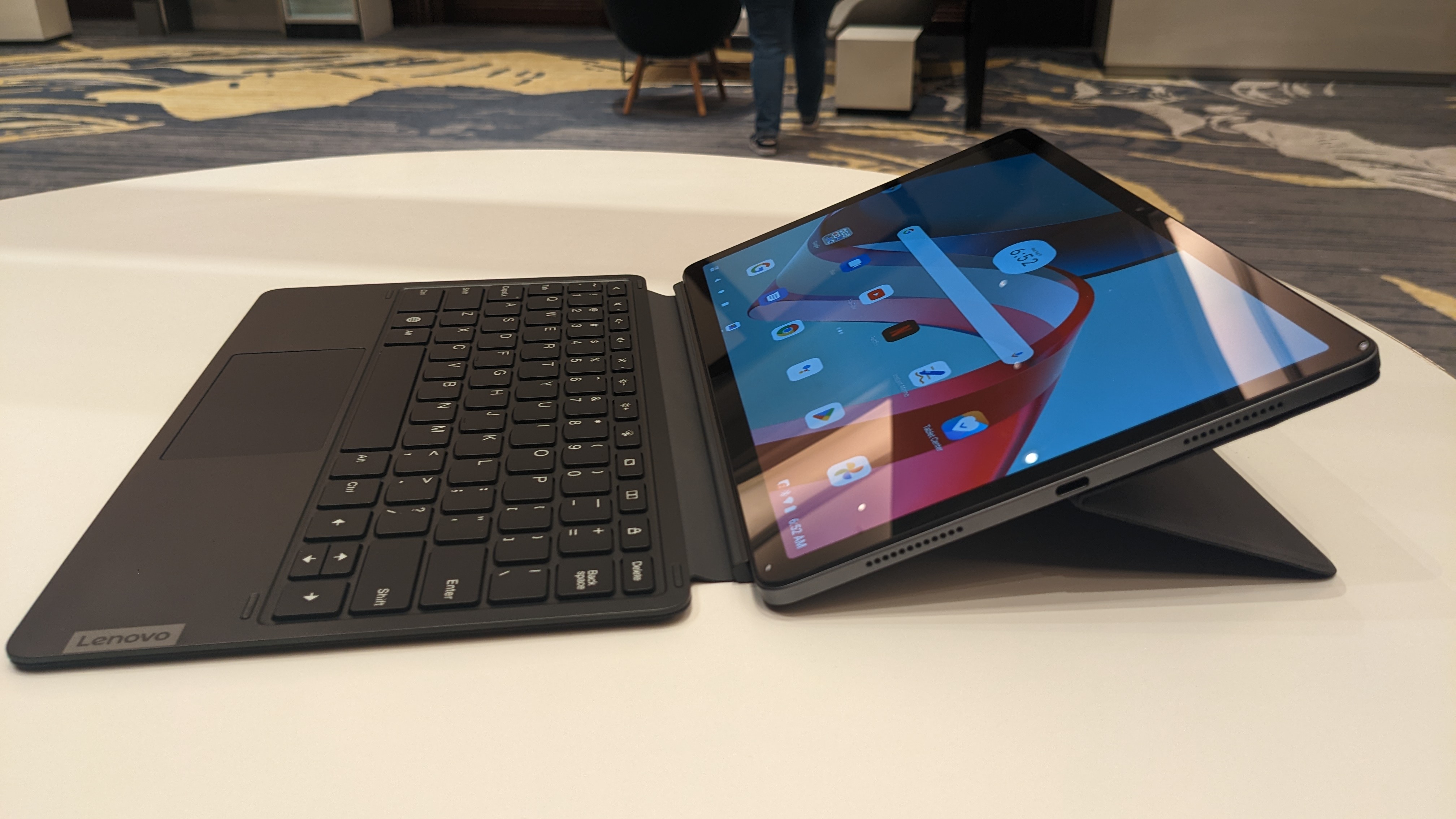
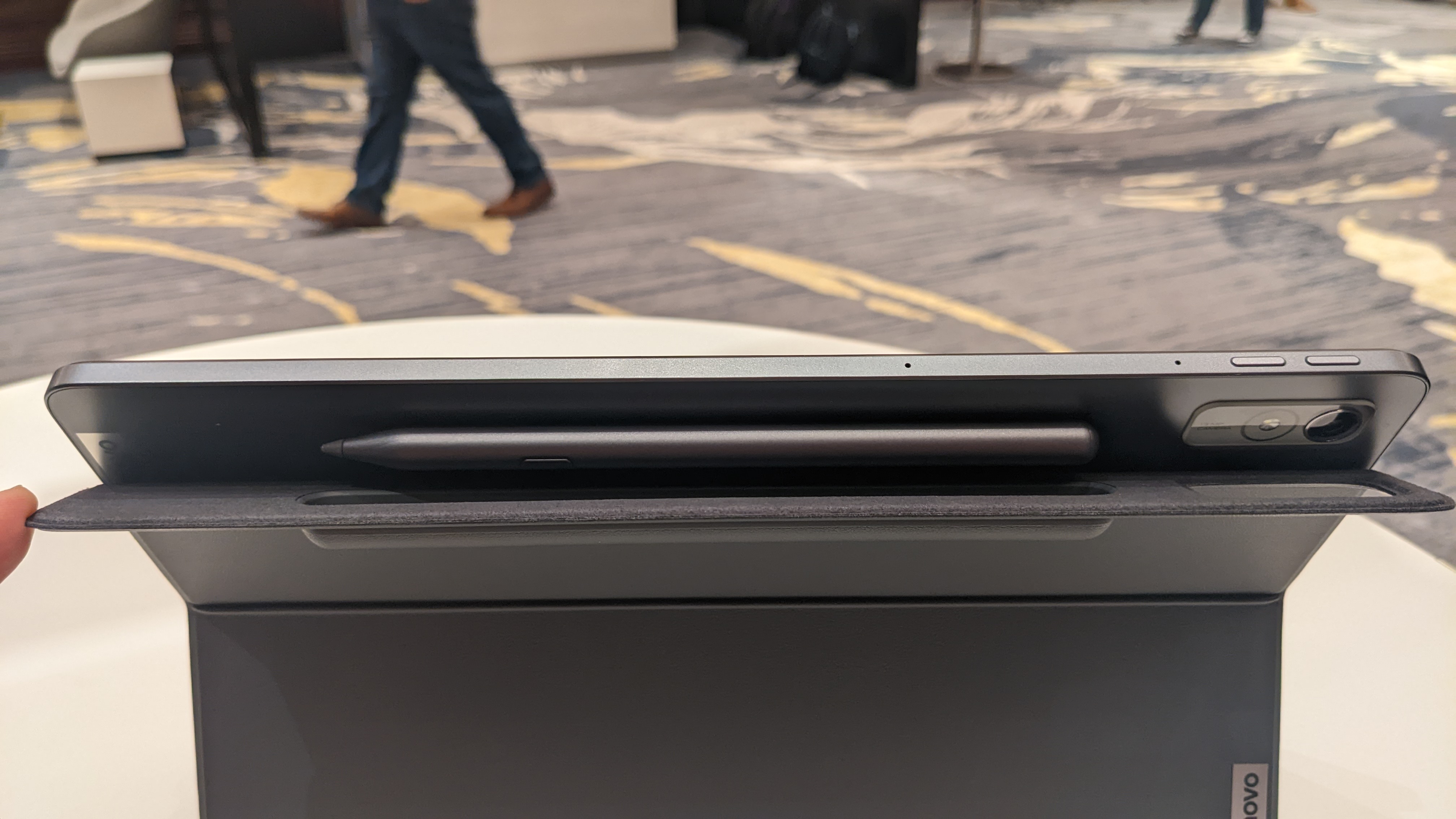
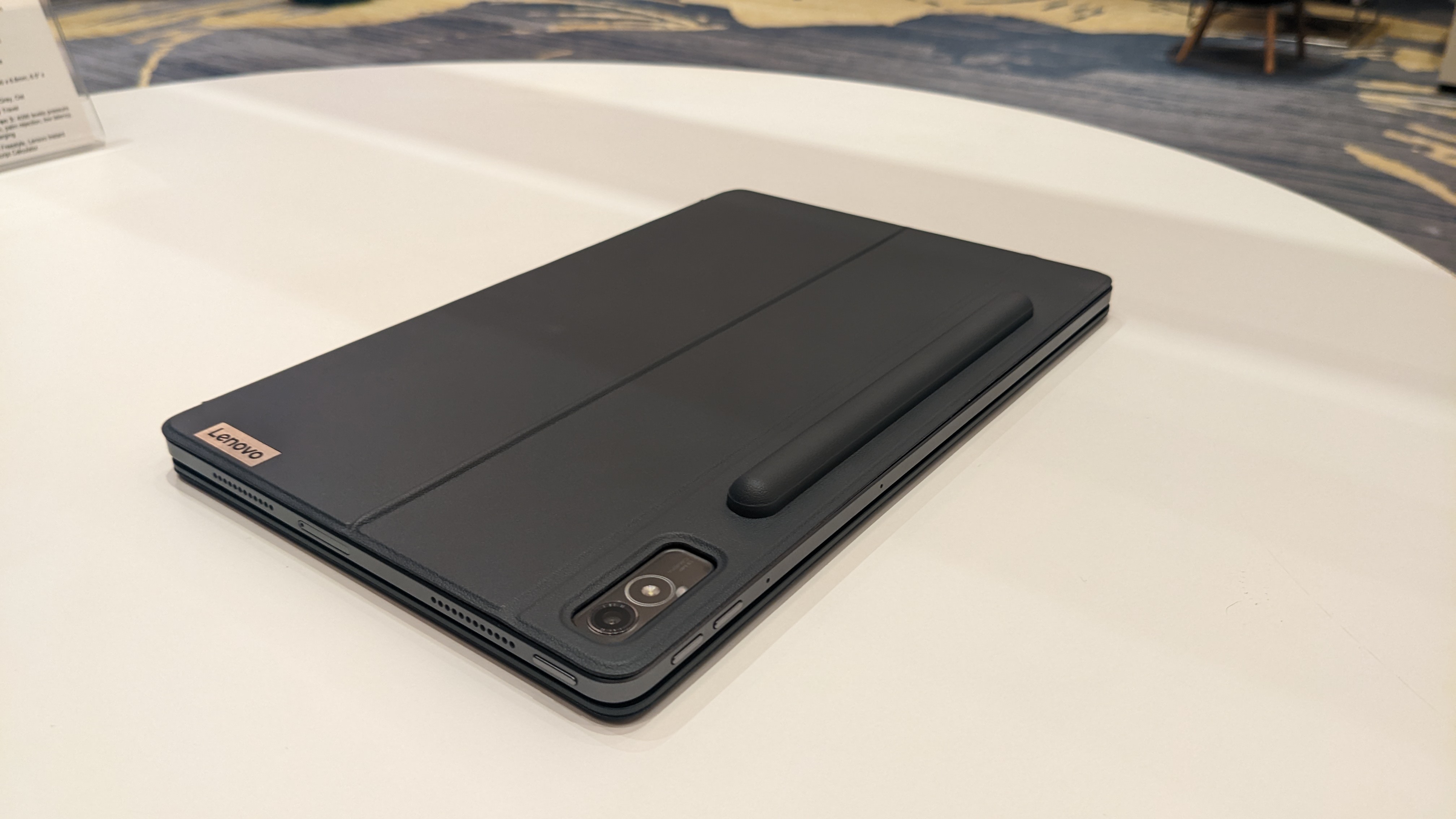
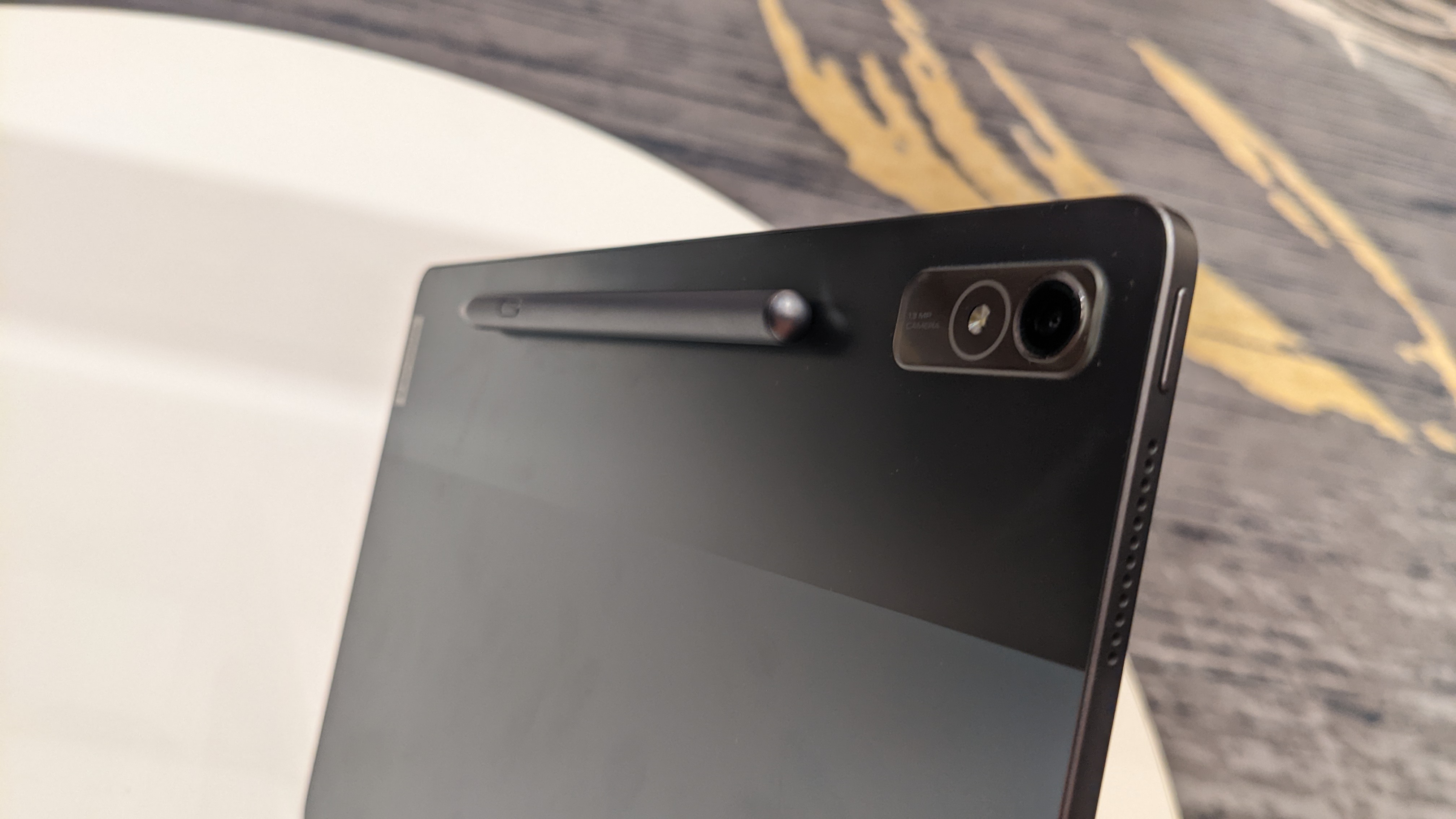
The keyboard is ‘optional’, but let’s face it: you’ll want it. Fortunately, it’s pretty good; the keys have a small amount of central indentation for a more comfortable typing experience, and more travel than we expected given how thin the keyboard cover is. The trackpad isn’t so great, tiny in size and lacking a solid click. Fortunately, this is a tablet - you’re likely to just reach up and use the touchscreen instead.
Weight-wise, the tablet itself is impressively lightweight. Add in the kickstand, stylus, and keyboard cover, though, and you’re looking at a significant increase in weight. It’s not a complete dealbreaker, but we do feel that some parts - especially the rear kickstand panel - could’ve been lighter.
Something that Lenovo hasn’t seen fit to improve was the unimpressive cameras of the original. We’ve still just got a 13MP rear camera and an 8MP front webcam. They’re not the worst cameras we’ve ever seen on a tablet, but their performance can be described as resoundingly ‘meh’, which is a bummer for those thinking of making lots of video calls on their tablet.
While the Tab P11 Pro Gen 1 featured LTE support for internet connectivity on the go, it appears that feature has been abandoned for this follow-up model (although it is still present in the regular Tab P11 Gen 2). This might explain the lower starting price that its predecessor, but it’s still a loss and we can’t really understand why Lenovo would choose to remove it.
Performance
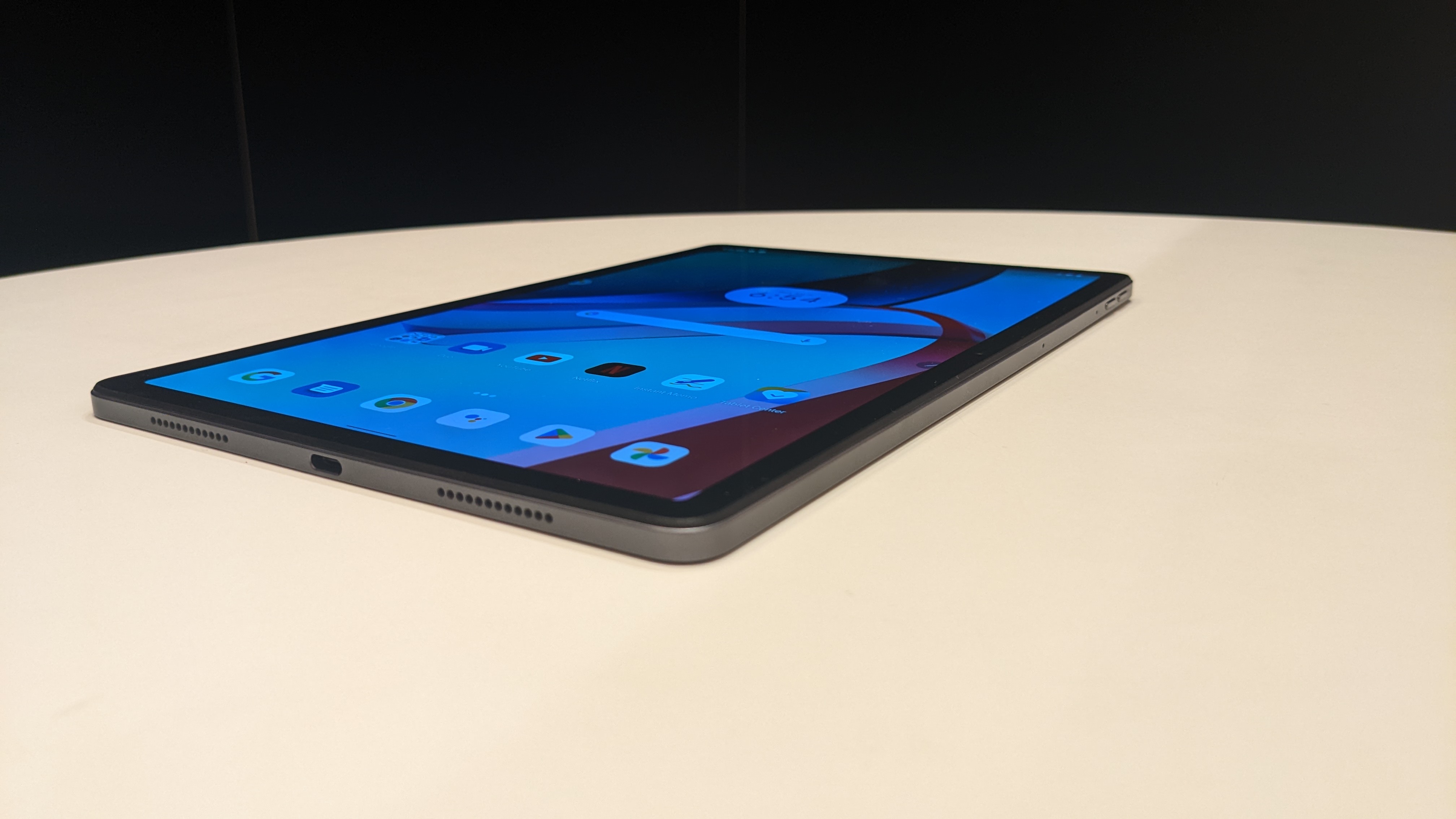
We’ll be receiving our own review unit of the Lenovo Tab P11 Pro Gen 2 soon, and will come back to update this review with our usual list of test results and insight. But for now, we did get to do some quick general-use testing while at Lenovo’s press event.
Initial impressions were strong; programs load up super-fast and the tablet feels generally responsive. From a complete shutdown, booting to the home screen only takes a few seconds. We opened a tonne of tabs in Chrome and didn’t see any noticeable slowdown, though it’s worth bearing in mind that the Android version of Chrome isn’t as power-hungry as it is on desktop PCs.
The Tab P11 Pro Gen 2 is powered by an octa-core Kompanio 1300T processor from MediaTek, with up to 8GB of memory and 256GB of storage. Meanwhile, the non-Pro Tab P11 Gen 2 uses a less powerful MediaTek Helio G99. The Tab P11 Pro Gen 2 has a quad-speaker setup with Dolby Atmos, which was difficult to test in a noisy room but sounded pretty good.
The one slightly odd choice we picked up on is the apparent use of Android 12, rather than Android 12L (which the Tab P11 Gen 2 will have once it launches next year). For those not in the know, 12L is the tablet-optimized version of Android, while 12 is better suited for smartphones. Android 13 is also now available, with Lenovo promising three years of OS update support through to Android 14. It’s a strange move that may have something to do with the choice of processor.
Early verdict
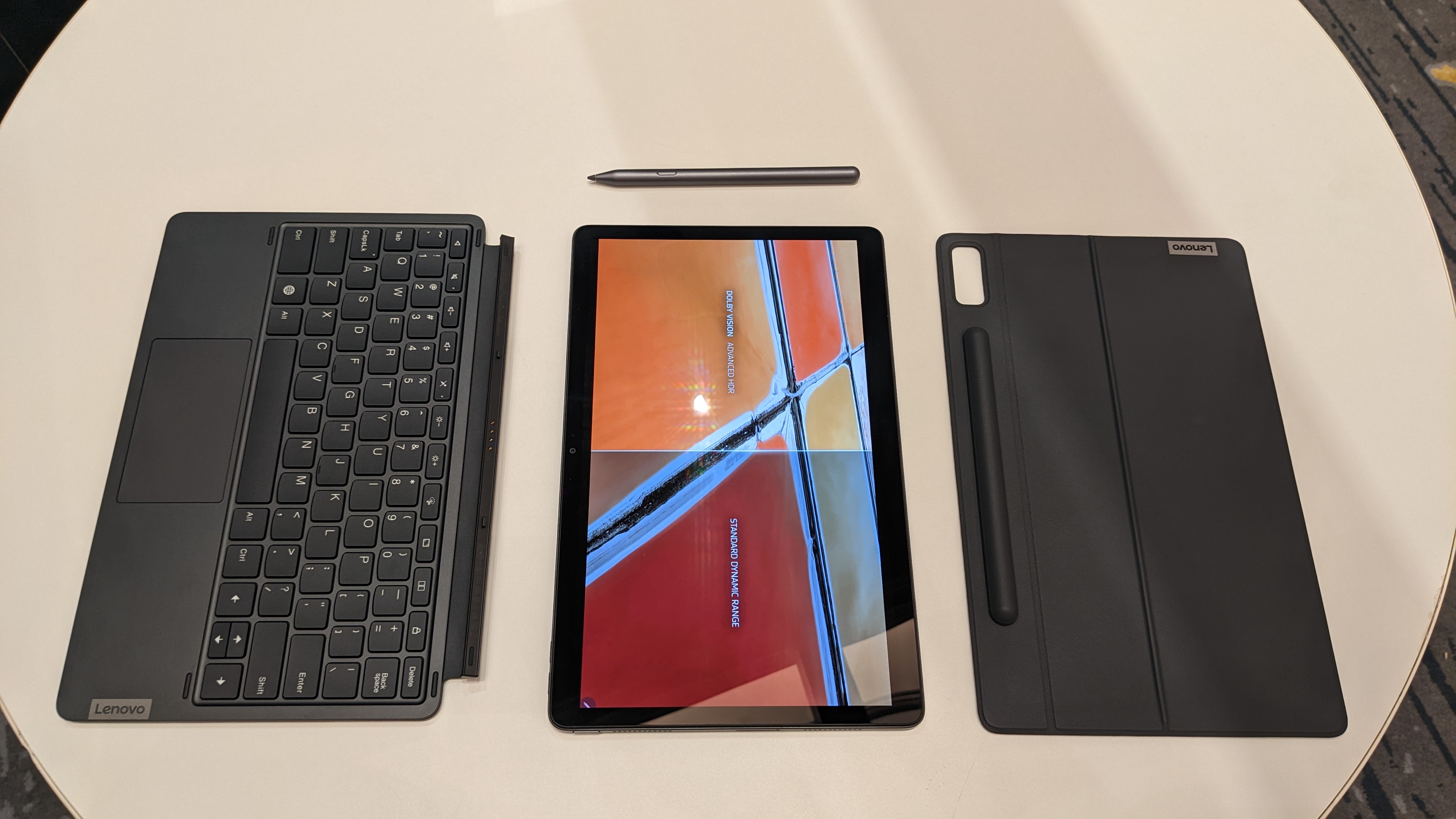
Although it’s a bit bulky with all the optional extras attached, we really like the Lenovo Tab P11 Pro Gen 2. It’s a subtle iteration on an already-solid product, a refinement that doesn’t seek to reinvent the wheel, but adds some new hubcaps and those cool James Bond things that shred the tires of rival cars.
Performance will be crucial here, as well as battery life. The original had an excellent battery, so if Lenovo can beat - or at least match - that, then we’ll be recommending this tablet for years to come. The only big missteps for use are the loss of LTE and the still-weak cameras, but if those aren’t problems for you, then you’ve just found your new favourite tablet.
IFA 2022 is Europe's biggest tech show, and TechRadar is in Berlin to bring you all the breaking news and announcements, plus our hands-on first impressions of the new TVs, wearables, audio devices and other gadgets on show.
0 comments:
Post a Comment